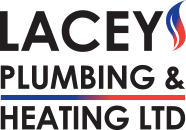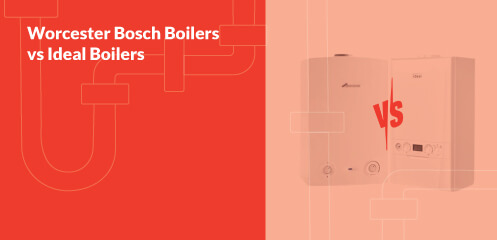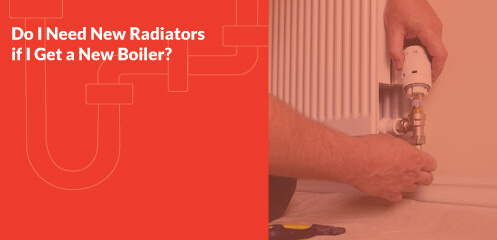Legionella Prevention in Water Systems
When designing, installing, or maintaining water systems, you always need to consider the risk and danger of legionella. Legionnaires disease can be a life threatening risk, caused by bacteria from poorly treated water systems.
Learn how to prevent legionella in water taps and showers, central heating systems, cooling towers, hot tubs and much more.
What is Legionella?

Legionella refers to a dangerous bacterium which thrives in central heating and other plumbing systems. It can cause a lung infection known as Legionnaires disease if not properly prevented/disinfected, through the inhalation of water droplets in the air.
Legionella is more commonly present in larger buildings like hotels, hospitals and offices, but it is still possible in a home plumbing system too.
Is legionella the same as legionnaires disease?
Legionnaires is the disease caused directly by the legionella bacteria. So, effectively, where legionella is present, there is a risk of legionnaires.
The easiest way to look at it is by defining legionella as the cause, and legionnaires as the illness which results from the presence of this bacterium.
How do you get Legionella in water systems?
Legionella thrives in water systems at temperatures of 20°C to 45°C. This bacteria naturally occurs in environments such as rivers or reservoirs, but can enter a building’s pipes and plumbing systems through potable water connection.
In its natural sources (rivers and larger bodies of water), the bacteria is normally widely spread, thus posing less of a risk.
After entering man-made plumbing systems, legionella then thrive in stagnant or slow-flowing water systems, particularly those with high levels of biofilm and/or corrosion, where there is also no disinfectant.
Controlling and treating Legionella in commercial water systems
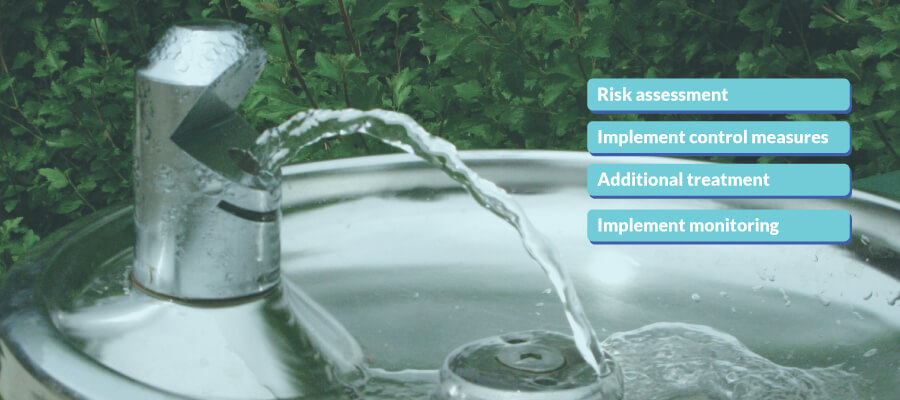
The risk of Legionella is much higher in commercial water systems, such as in office buildings, hotels, hospitals, HMOs and more. As a result, controlling and treating it is a professional job which requires expertise.
If you’ve identified that legionella is present in your commercial water system, we’d need to take the following approach to dealing with it:
- 1Risk assessment - We’d need to understand what the risks are, and what’s causing the legionella to thrive. A risk assessment would uncover the areas where problem temperatures, and/or high levels of biofilm, are.
- 2Implement control measures - Based on the risk assessment, we’d implement control measures to deal with the problem. This may include storing hot water at 60°C or higher, or cold water below 20°C. It may also involve a system flush, or a thorough clean and disinfection of the systems.
- 3Additional treatment - For particularly bad cases, we may need to implement more extreme chemical treatments and system flushing, to ensure no bacteria remains.
- 4Implement monitoring - To ensure the issue doesn’t return, we’d routinely check that temperatures are not too high/low, as well as documenting all cleaning and routine disinfections.
Preventing Legionella in commercial water systems
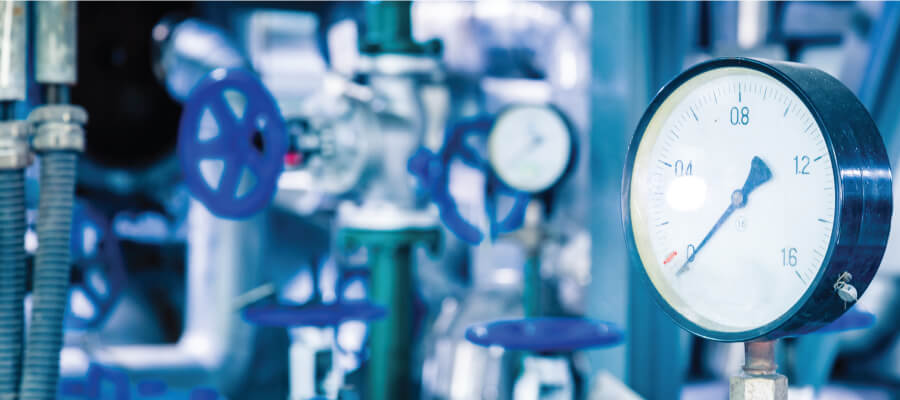
Ideally, you wouldn’t ever need to treat legionella. To avoid doing so, you need an accurate prevention strategy.
To prevent legionella in commercial water systems, you need to:
All of the above, plus regular plumbing maintenance will drastically help to reduce the risk of Legionnaires disease.
Assessing the risk of Legionella when updating commercial water systems
Managing legionella when updating your commercial water systems means assessing the risk, and ascertaining what needs to be done to prevent legionella from forming and multiplying.
This involves understanding the current system, where problem points may lie and ensuring they’re not present in the updated system. Equally, this might involve establishing why legionella hasn’t been an issue in the past, and maintaining the health and safety measures which have led to this.
You may also need to prepare your heating system for the winter months.
This is a process which needs to be carried out by experienced plumbing and heating specialists, as this is the only way to ensure all best practices are being followed, and that your water systems are entirely safe for use.
